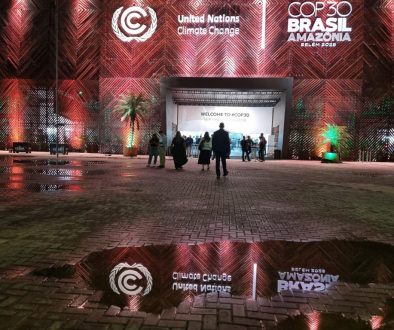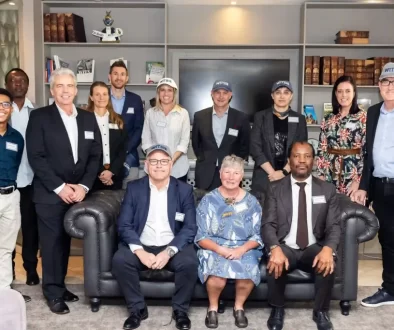Tetra Pak and Gayatri Paper Mills partnership bears fruit
Tetra Pak and Gayatri Paper Mills’ partnership has reached fruition with the operational launch of the first carton recycling facility of its kind in South Africa during the World Environment Week.
The partnership between food processing and packaging Tetra Pak and recycling operation Gayatri Paper Mills ensures the complete, environmentally responsible and friendly lifecycle of the carton from cradle to grave, as 6 000 tons of used beverage cartons per annum are destined for local reuse.
“When the contents are gone, the carton lives on,” says Rodney Reynders, environment cluster leader, sub-Sahara Africa at Tetra Pak. “The unpretentious carton pack goes largely unnoticed in consumer homes worldwide more than 400 million times a day – appreciated for it’s low carbon, low cost simplicity but unrecognised for it’s engineering excellence.”
Tetra Pak’s cartons are made even more environmentally friendly with the introduction of the recycling facility as the impact of every element of the carton’s lifespan is now considered, from responsibly managed forests to use and reinvention as a recycled product.
In addition the multilayer engineering keeps product fresh inside for up to 12 months without needing energy-sapping refrigeration. Milk and juice processing machines from Tetra Pak use the latest technology to save energy and water,while technical processing support to customers focuses on reducing productwaste during the packaging of milk and juice.
The partnership is looking for rapid annual expansion in the volume of recycled material which will be sold backinto local industry. It creates wealth from waste and sustainable local revenues.
This partnership is part of Tetra Pak’s ongoing global programme to boost recycling rates. In 2010 Tetra Pak supplied 158 billion individual packages used by food and beverage companies around the world to deliver over 74 billion litres of milk, juice, fruits and other products to consumers. Thirty two billion used cartons were recycled globally that year which eliminates more than 473 kilo tonnes of waste and provides the base material for a host of new products.
The model is based on established carton recycling businesses in Brazil and seeks to include partners from local businesses to government and entrepreneurs.
Several direct jobs have already been created by the partnership with many more knock-on jobs for balers and collectors. Tetra Pak works closely with local recycling programmes to provide an extensive base for consumers to recycle their household carton waste, both as part of suburban home collection programmes and drop off sites at schools, key retailers and some industrial drop off areas. Lists of recycling drop off points can be found at www.tetrapak.co.za and www.mywaste.co.za.
Tetra Pak’s aseptic cartons consist mainly of renewable paper board (75%) with the remaining layers of aluminium and polyethylene (PolyAlu) making up 25% of the carton. Both portions of the used carton waste are 100% recyclable.
Recyclables are collected across the country by waste management and private collection companies who sort them into different materials streams. Carton waste is then baled and sold on to Gayatri Paper Mills for recycling.
Gayatri employs a modified hydro-pulper, not unlike a giant, domestic blender which separates the paper board from the PolyAlu through a cold water friction process.
The baled units are fed, caps and all via an elevator, into the hydro pulper. The hydro pulper blade agitates the cold water solution and within 20 minutes the paper board has become separated from the PolyAlu portions. The pulp is pumped off into the main paper mill where it is turned into cardboard. The cardboard is then converted into boxes that are used to ship milk and juice products into stores for people to buy – a complete, closed loop product story.
The PolyAlu portion that remains is baled and sent for aggromulation into small pelletsthat can then be used to manufacture a wide range of useful products, from cellphone covers, to park benches, school desks and chairs.
ABOUT TETRA PAK
Tetra Pak is the world’s leading food processing and packaging solutions company. Working closely with our customers and suppliers, we provide safe, innovative and environmentally sound products that each day meet the needs of hundreds of millions of people in more than 170 countries around the world. With almost 22,000 employees based in over 85 countries, we believe in responsible industry leadership and a sustainable approach to business. Our motto, “PROTECTS WHAT’S GOOD™,” reflects our vision to make food safe and available, everywhere.
More information about Tetra Pak is available at www.tetrapak.com



